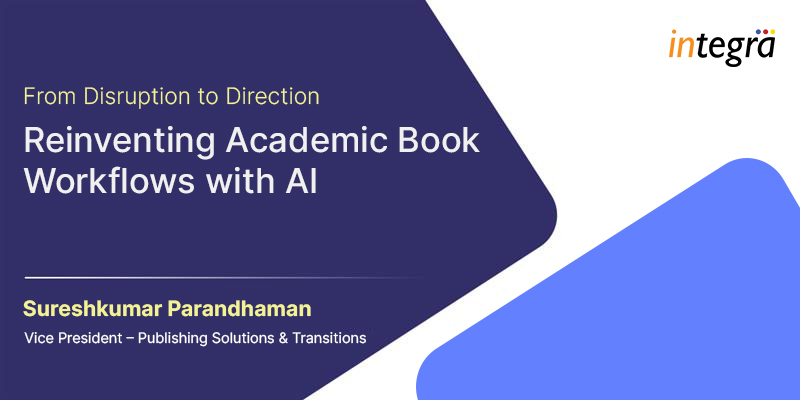Transforming Supply Chains with ML: A Modern Enterprise Revolution

Optimizing Supply Chain Operations with Advanced ML Models
In today’s hyper-competitive landscape, efficient supply chain operations are no longer a luxury, but a strategic imperative for modern enterprises. They directly impact factors like cost, responsiveness, and ultimately, customer satisfaction. However, traditional approaches often struggle with siloed data, limited visibility, and reactive decision-making. Enter the game-changer: advanced Machine Learning (ML) models. The machine learning market is expected to grow from around 140 billion U.S. dollars to nearly two trillion U.S. dollars by 2030. By harnessing the power of data and intelligent algorithms, ML can unlock unprecedented levels of optimization and agility in your supply chain.
Challenges in Traditional Supply Chain Management:
Traditional methods frequently face obstacles like:
- Demand forecasting inaccuracies: Leading to overstocking or stockouts, impacting profitability and customer experience.
- Inefficient inventory management: Resulting in high carrying costs, lost sales, and potential obsolescence.
- Suboptimal logistics and transportation: Contributing to delays, increased costs, and carbon footprint.
- Limited visibility and siloed data: Hindering proactive decision-making and hindering operational agility.
These challenges directly impact business performance, leading to lost revenue, increased costs, and dissatisfied customers.
The Role of Machine Learning in Supply Chain Optimization:
Advanced ML models can address these challenges head-on by:
- Analyzing vast amounts of data: Identifying patterns, trends, and hidden correlations that humans might miss.
- Building highly accurate demand forecasting models: Leading to optimized inventory levels and reduced stockouts.
- Automating repetitive tasks: Freeing up human resources for strategic planning and analysis.
- Optimizing transportation routes and logistics: Minimizing costs, delivery times, and environmental impact.
- Predictive maintenance: Preventing equipment failures and ensuring smooth operations.
Amazon SageMaker focuses on machine learning-based business practices. It uses terabytes of data from the Amazon databases and helps them to eliminate all the waste of packaging that is done by predicting the user buying forecast and then identifying which of the smaller products can be shipped in a small paper bag and require less packaging in order to reduce all the waste packaging.
More Retail Ltd. (MRL) is one of India’s top four grocery retailers, with a revenue in the order of several billion dollars. MRL used Amazon Forecast to increase their forecasting accuracy from 24% to 76%, leading to a reduction in wastage by up to 30% in the fresh produce category, improving in-stock rates from 80% to 90%, and increasing gross profit by 25%.
Implementing ML Models in Your Supply Chain:
While the benefits of ML in supply chain optimization are evident, the implementation process can seem daunting. Here’s a step-by-step guide to help you navigate it effectively:
1. Assess Your Needs and Data:
- Identify specific pain points: What challenges are you facing in your supply chain? Is it inaccurate demand forecasting, inefficient inventory management, or suboptimal logistics?
- Evaluate your data readiness: Do you have access to clean, organized, and relevant data for analysis? Invest in data cleansing and structuring if needed.
- Define success metrics: How will you measure the impact of ML implementation? Set clear goals like improved forecast accuracy, reduced stockouts, or cost savings.
2. Choose the Right ML Model and Tools:
- Understand different ML models: Explore options like regression for forecasting, clustering for demand segmentation, and anomaly detection for predictive maintenance.
- Consider pre-built solutions: Numerous platforms offer pre-trained ML models tailored to specific supply chain needs, especially for smaller businesses.
- Evaluate development tools: Explore cloud-based platforms like Google Cloud AI Platform or Amazon SageMaker that offer tools and infrastructure for ML development and deployment.
3. Start Small and Scale Up:
- Pilot project: Begin with a specific challenge and a manageable dataset to experiment and gain experience.
- Proof of concept: Showcase the value of your pilot project with clear results and metrics, gaining buy-in for further investment.
- Iterate and refine: Continuously monitor and improve your ML models as you gather more data and feedback.
- Develop a scaling plan: As your project proves successful, develop a roadmap for deploying your solution across the entire supply chain.
4. Build Your Team and Expertise:
- Internal collaboration: Involve domain experts from your supply chain and IT teams for model development and validation.
- External resources: Consider partnerships with data scientists or specialized consulting firms for deeper expertise and guidance.
- Upskilling and training: Invest in training your team to understand ML concepts and interpret results for informed decision-making.
5. Remember the Human Factor:
- Change management: Prepare your workforce for the shift towards data-driven decision-making and address any concerns about automation.
- Transparency and explainability: Ensure your ML models are interpretable and explainable to build trust and confidence among stakeholders.
- Focus on collaboration: View ML as a tool to complement human expertise, not replace it. Leverage the combined power of data and human insights for optimal results.
Future Trends in ML and Supply Chain Management:
The future of ML in supply chain management is bright, with emerging trends like:
- Edge computing: Enabling real-time decision-making based on on-device data analysis.
- Explainable AI: Providing transparency and building trust in ML-driven decisions.
- Generative models: Optimizing product design, packaging, and marketing strategies.
Conclusion:
By embracing advanced ML models, enterprises can unlock the full potential of their supply chains, achieving greater efficiency, cost reduction, and agility. The journey starts with acknowledging the challenges, understanding the power of ML, and taking the first step towards data-driven optimization. The future of supply chain management is intelligent, automated, and data-driven, and those who embrace this change will be the ones leading the pack. Feel free to connect with our team to learn more about custom ML models and how you can incorporate them in your business.
Recent Blogs

Research Integrity vs. Publication Integrity: Clarifying Responsibility in Scholarly Publishing

From Disruption to Direction: Reinventing Academic Book Workflows with AI


